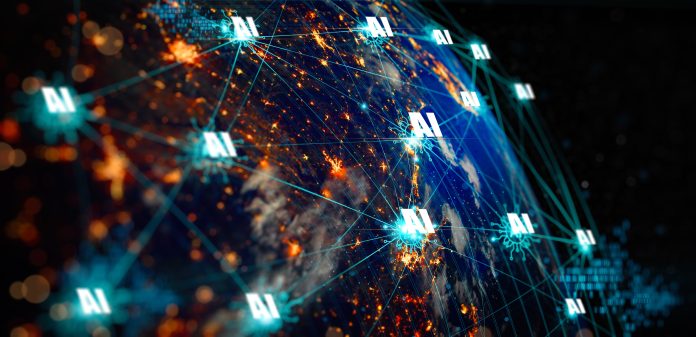Internet exchange (IX) operator DE-CIX announced that its global ecosystem of exchanges is AI-ready, with the implementation of Phase 1 of its AI Internet Exchange (AI-IX) to support model training and inference. The company now has more than 50 AI-relevant networks—including AI-inference-as-a-service and GPU-as-a-service providers as well as cloud service providers—connected to its platform which offers more than 160 cloud on-ramps worldwide, plus scalable, proprietary multi-AI routing technology, officials said.
The dedicated AI-IX is designed to ensure seamless interconnection between intelligent agents, next-gen networks such as 5G advanced and LEO satellites, and real-world applications including robotics and self-driving vehicles, the company said.
Phase 2 of the rollout, expected soon, is intended to make the DE-CIX AI exchanges “ultra-ethernet-ready, capable of supporting geographically distributed AI training, as model training begins to move out of centralized facilities,” officials said. “Rollout of both phases is being undertaken globally. As such, DE-CIX will become the first operator to offer an AI-IX that can support both training and inference.”
AI operations are generally divided into two phases: AI training and AI inference. Both benefit from AI peering advantages such as cost reductions, increased security, higher performance and reduced complexity, according to DE-CIX.
“With various predictions made for millions—even hundreds of millions—of AI agents in the coming years, the need for interconnection services to support their operations is growing massively,” said Ivo Ivanov, CEO of DE-CIX.
AI inference, in which the agent is applied to real-world situations to provide real-time insights interaction and support, “is dependent on highly resilient, low-latency and secure connectivity,” Ivanov said. “For enterprises to be able to exploit the advantages of AI, the digital lifeline consists of three elements, what I like to call the Digital Triangle of AI Inference Interconnection.”
To Ivanov, those three elements include 1) the millions of agents currently emerging, many of which are multimodal; 2) AI-powered devices/applications (cars, robots, processes, etc.); and 3) modern transmission technologies like fiber, 5G advanced and LEO satellite networks. All three elements must be interwoven in a reliable, secure and high-performance manner using direct interconnection, known as peering, DE-CIX officials said.
“This is the core benefit of the DE-CIX AI-IX, which uses the DE-CIX AI router to enable seamless multi-agent inference for today’s complex use cases and tomorrow’s innovation in all industry segments,” Ivanov said.
AI training models will be the focus of the Phase 2 rollout. “With the advent of ultra ethernet, a new protocol for the routing of data traffic in a quality relevant for AI, the design of infrastructure for the heavy computations of AI training is changing,” company officials said.
“Until now, huge, centralized data centers have been needed to quickly process AI computing loads on parallel clusters,” said Thomas King, CTO of DE-CIX. “Ultra ethernet is driving the trend toward disaggregated computing, enabling AI training to be carried out in a geographically distributed manner within a metropolitan area. This will revolutionize the infrastructure for AI training and offer companies new alternatives for designing resilient and more cost-effective private AI infrastructure.”
According to DE-CIX, the next iteration of the ultra ethernet standard will be rolled out once the software feature is made available by network hardware vendors and is expected to provide a “significantly” more cost-effective solution to the existing protocol for AI networking, InfiniBand. DE-CIX’s hardware can already support the enhanced ethernet standard, and the operator will make it available upon rollout, company officials said.









